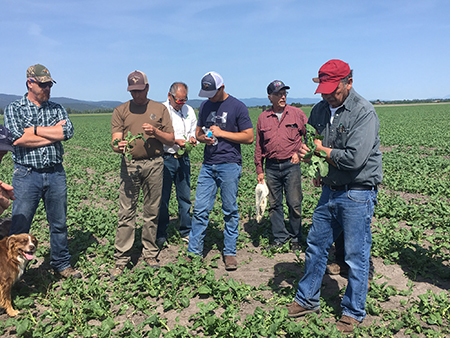No Drought Of Criticism
For agriculture, the start of a new cropping year brings plenty of promise, a few challenges and the overall hope that conditions — both weather-related and financial — will be better than the year before. There is usually also a fair amount of interest in the newest agricultural-related items getting ready to hit the market.
Of course, the other thing that inevitably appears in a new year is criticism of these new products. However, by far the loudest critics of agriculture are those that decry the use of biotech crops. Since these genetically-engineered plants first started appearing in U.S. fields during the mid-1990s, opponents have openly attacked their use. Claims against the use of biotech crops have run the gambit, from “they are artificially-created mutants” to “they could kill unsuspecting consumers” (a claim that has yet to be proven, despite the fact that most U.S. consumers have probably eaten at least a few biotech crops in the past 15 years or so).
Yet, there is a wealth of evidence that biotech crops have been beneficial to both grower-customers and end users. Their use, and protection against weed and insect infestations, has kept yields growing, using essentially the same amount of land that growers used 20 years ago to feed the nation and world.
That’s why I’m excited for the latest round of biotech crops to appear. Just before the new year, the USDA deregulated drought-tolerant corn from Monsanto, clearing its way for sale. The company plans to conduct farm trails of the new biotech corn this year in the Western Plains states.
When you look at the facts, corn that can thrive with less water seems like a no-brainer. According to numerous research studies, corn-growing regions across the globe lose approximately 15% of their annual crop to drought, with losses running much higher in severe conditions. In North America, approximately 40% of crop yield loss is a direct result of water scarcity. Therefore, having a drought-tolerant corn variety should ultimately prove useful in places such as portions of Texas, which has experienced a prolonged drought for the past few years, not to mention helping to keep yields high for an ever-growing and hungry world population.
Given these facts, I would have thought that it would have been hard to find anyone who would protest the coming of drought-tolerant corn. But it wasn’t. On one Website, I found this comment citing a study that claims the new biotech corn performed no better than conventional corn under similar conditions: “So in the end, USDA will likely approve a corn for deregulation that’s both ineffective, could cause contamination with non-GM varieties and we’re not sure of the impact on humans down the road.”
So in the end, the same old arguments against the use of biotech crops are again being played out on the Internet, like some severely worn LP from the past. But I’m betting the chance to reclaim some habitually-arid land will ultimately win out.






